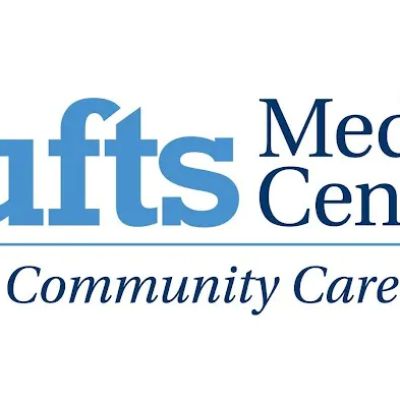- Impact of Smoking on Heart Health
- Benefits of Quitting Smoking for Heart Disease Prevention
- Real-Life Stories and Professional Insights
- Support Resources for Quitting Smoking
1. Impact of Smoking on Heart Health
Smoking is one of the leading causes of heart disease worldwide, directly damaging the cardiovascular system. The chemicals in tobacco smoke, such as nicotine and carbon monoxide, accelerate the buildup of plaque in arteries—a process known as atherosclerosis—which narrows blood vessels and restricts blood flow to the heart. This raises the risk of serious conditions like heart attacks, stroke, and peripheral artery disease.
Nicotine raises heart rate and blood pressure, putting additional strain on the heart. Carbon monoxide, meanwhile, reduces oxygen availability in the blood, forcing the heart to work harder to supply oxygen to tissues. Over time, these effects compound, significantly increasing the likelihood of developing chronic cardiovascular problems.
Understanding how smoking harms heart health is essential for motivating individuals to consider quitting. Many smokers underestimate the immediate and long-term damage caused, but research shows even occasional smoking poses risks. Protecting the heart means addressing these threats head-on.

1.1 How Smoking Accelerates Heart Disease
When a person smokes, their blood becomes stickier, increasing the chance of clots forming inside arteries. This can block blood flow suddenly, leading to heart attacks. Additionally, smoking damages the lining of arteries, reducing their elasticity and promoting inflammation, which further worsens cardiovascular conditions.
For people already diagnosed with heart disease, smoking worsens symptoms and increases the risk of fatal events. Therefore, quitting smoking is a critical step in managing heart conditions and improving quality of life.
Capital Health Medical Center – Hopewell
capital health medical center hopewell
1 Capital Way, Pennington, NJ 08534, USA

2. Benefits of Quitting Smoking for Heart Disease Prevention
Quitting smoking yields immediate and long-lasting benefits for heart health. The body begins repairing the damage caused by tobacco almost immediately after the last cigarette. Within 20 minutes of quitting, blood pressure and heart rate begin to normalize. Within weeks, circulation improves and lung function increases, easing strain on the heart.
Long-term quitting dramatically reduces the risk of heart disease. After one year, the risk of coronary heart disease drops by half compared to someone who continues smoking. Over 15 years, the risk may approach that of a non-smoker, showcasing the powerful benefits of smoking cessation.
2.1 How Quitting Reduces Cardiovascular Risks
By quitting smoking, inflammation in the arteries decreases, blood clotting tendencies return to normal, and oxygen transport in the blood improves. These physiological changes lower the risk of plaque rupture and blood clots—key triggers for heart attacks and strokes.
Additionally, quitting supports better blood pressure control and reduces arrhythmias (irregular heartbeats), further stabilizing heart function. People who quit often report feeling more energetic and experiencing fewer symptoms related to cardiovascular strain.
2.2 Practical Steps to Maximize Benefits
Successful quitting often requires planning and support. Gradual reduction, nicotine replacement therapy, and behavioral counseling can improve chances of long-term cessation. Combining these strategies with regular cardiovascular check-ups helps monitor heart health improvements and tailor care accordingly.
3. Real-Life Stories and Professional Insights
Consider the story of John, a 52-year-old who smoked for over 30 years. After experiencing chest pains, John decided to quit smoking following advice from his cardiologist. Within six months, John reported improved breathing and more stamina during exercise. His doctor noted reduced arterial inflammation and better blood pressure control, highlighting how quitting smoking positively transformed his heart health.
Medical professionals emphasize that quitting smoking remains one of the most effective ways to prevent heart disease and improve life expectancy. HeartCare Hub offers resources and expert advice to support smokers ready to quit, ensuring personalized guidance through this challenging journey.
These stories underscore that while quitting is difficult, the heart health benefits make it an indispensable goal. Real-world experiences show how people regain vitality and reduce their cardiovascular risks by committing to smoke-free living.
4. Support Resources for Quitting Smoking
Embarking on the journey to quit smoking requires reliable support. At HeartCare Hub, visitors can find carefully curated products, services, and expert consultations aimed at aiding smoking cessation and enhancing heart health. From nicotine replacement aids to counseling services, HeartCare Hub provides comprehensive assistance tailored to individual needs.
Access to community forums and educational materials further empowers users to understand the benefits of quitting and maintain motivation. The integration of professional insights and user-friendly resources creates an environment where quitting smoking becomes an achievable and sustainable goal.
Investing in your heart health by quitting smoking is one of the most impactful choices you can make. With the right tools and support, lasting change is within reach.






















Deborah Heart and Lung Center
deborah heart and lung center
200 Trenton Rd, Browns Mills, NJ 08015, USA